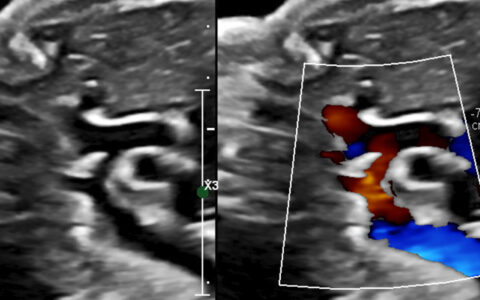Investigators at Vanderbilt University Medical Center have confirmed a link between a shortage of magnesium in the body and increased hypertension, with results published recently in Frontiers in Physiology.
The investigation grew out of a clinician’s observations in combination with a previous study conducted by Ashley Pitzler Mutchler, Ph.D., and Annette Kirabo, Ph.D., involving inflammation in salt-sensitive hypertension.
The clinician, Evan C. Ray, M.D., a co-author of the current study, working as a kidney specialist at the University of Pittsburgh, observed a correlation in his patients between high blood pressure and low magnesium levels and later went on to publish his work on dietary salt and its effect on the inflammasome in antigen-presenting cells, resulting in high blood pressure. Mutchler and Kirabo tracked similar mechanisms in their recent magnesium study.
Inflammation and Blood Pressure
“There is evidence that eating too much salt can lead to depletion of other ions, such as magnesium,” Kirabo said. “In this new study, we deliberately caused magnesium depletion in mice, activating this inflammatory pathway, and the result was hypertension.”
In about 50 percent of the hypertensive population, and in up to 75 percent of the Black hypertensive population, salt consumption leads to a rapid rise in blood pressure, Kirabo continued, describing “an almost allergy-like reaction.”
“Their immune cells react, leading to activation of the inflammasome. We found that magnesium depletion can play a role in this pathway.”
“We deliberately caused magnesium depletion in mice, activating this inflammatory pathway, and the result was hypertension.”
For more than 50 years, researchers have observed a role for inflammation in hypertension, but the mechanisms were not known, Kirabo said.
“We are only now starting to get the tools, such as single-cell RNA sequencing data, that allow us to examine the processes. Using flow cytometry, we can determine what proteins each cell expresses, and we can couple that with genetic expression.”
Diet and Supplementation
Nearly half of the adults in the United States are estimated to fall short in required daily consumption of magnesium.
Magnesium is believed to improve arterial elasticity and adequate intake was associated with decreased risk of hypertension in a meta-analysis of 10 cohort studies. According to Mutchler, supplementation may be on the rise.
Given the combined prevalence of hypertension and dietary magnesium depletion, Mutchler says dietary magnesium may be an important, modifiable risk factor for hypertension and cardiovascular disease.
Availability of fresh produce is of concern, especially in neighborhoods considered food deserts, where few or no grocery stores exist nearby but plenty of high salt convenience options are available.
Mutchler mentioned two other factors at work.
First are the nutrient levels in commercially available foods, which have decreased in the last century due to changes in agricultural methods and food processing. For example, magnesium content in wheat has dropped nearly 20 percent since 1968.
The second factor is widespread use of thiazide diuretics to treat hypertension. This can lead to wasting of magnesium and potassium, counterproductive in treating blood pressure. Potassium levels are routinely tested, but there is far less testing of magnesium, the researchers said.
Mutchler and Kirabo have paid particular attention to the salt-sensitive part of the population and how magnesium levels affect them. Mutchler said the combination of high salt and low magnesium could be especially hazardous: mice fitting that profile died before the end of the study.
Kirabo points out that, in the general population, reducing salt consumption and increasing magnesium intake may provide health benefits overall.
When asked if she has a lesson from the study for physicians treating hypertensive patients, Kirabo says: “Pay attention to magnesium!”





